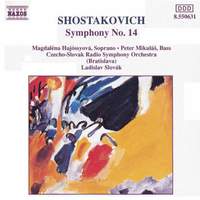I rarely 'need' DSCH: this year I yearned to hear his first Violin Concerto and so I ordered the NB / KK version. Most years, I'm an accidental listener having gone to a Concert for another reason: in 2018, I bumped into his 1st and 7th string quartets.
C.f. Myaskovsky: I reacquaint myself with one of of his symphonies during most months.
There's nowt so queer as folk.
C.f. Myaskovsky: I reacquaint myself with one of of his symphonies during most months.
There's nowt so queer as folk.


Comment